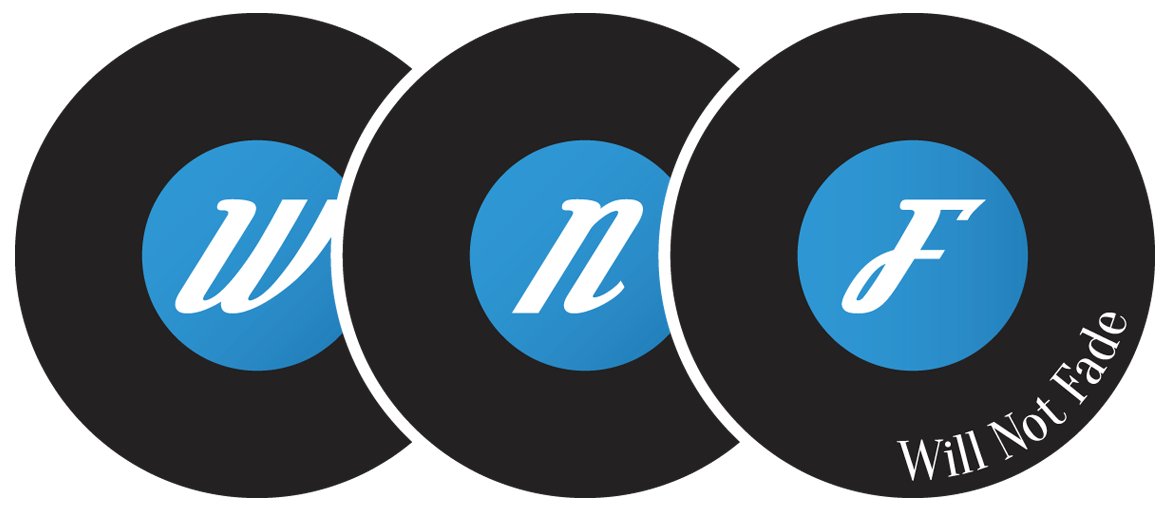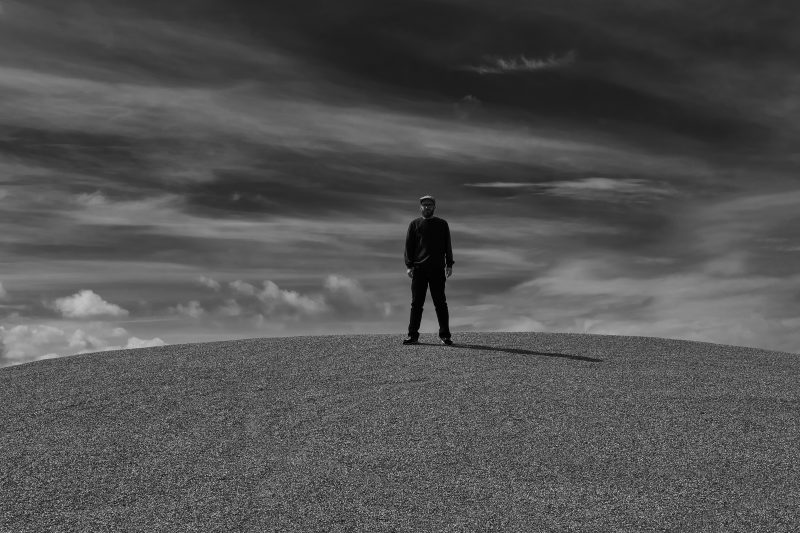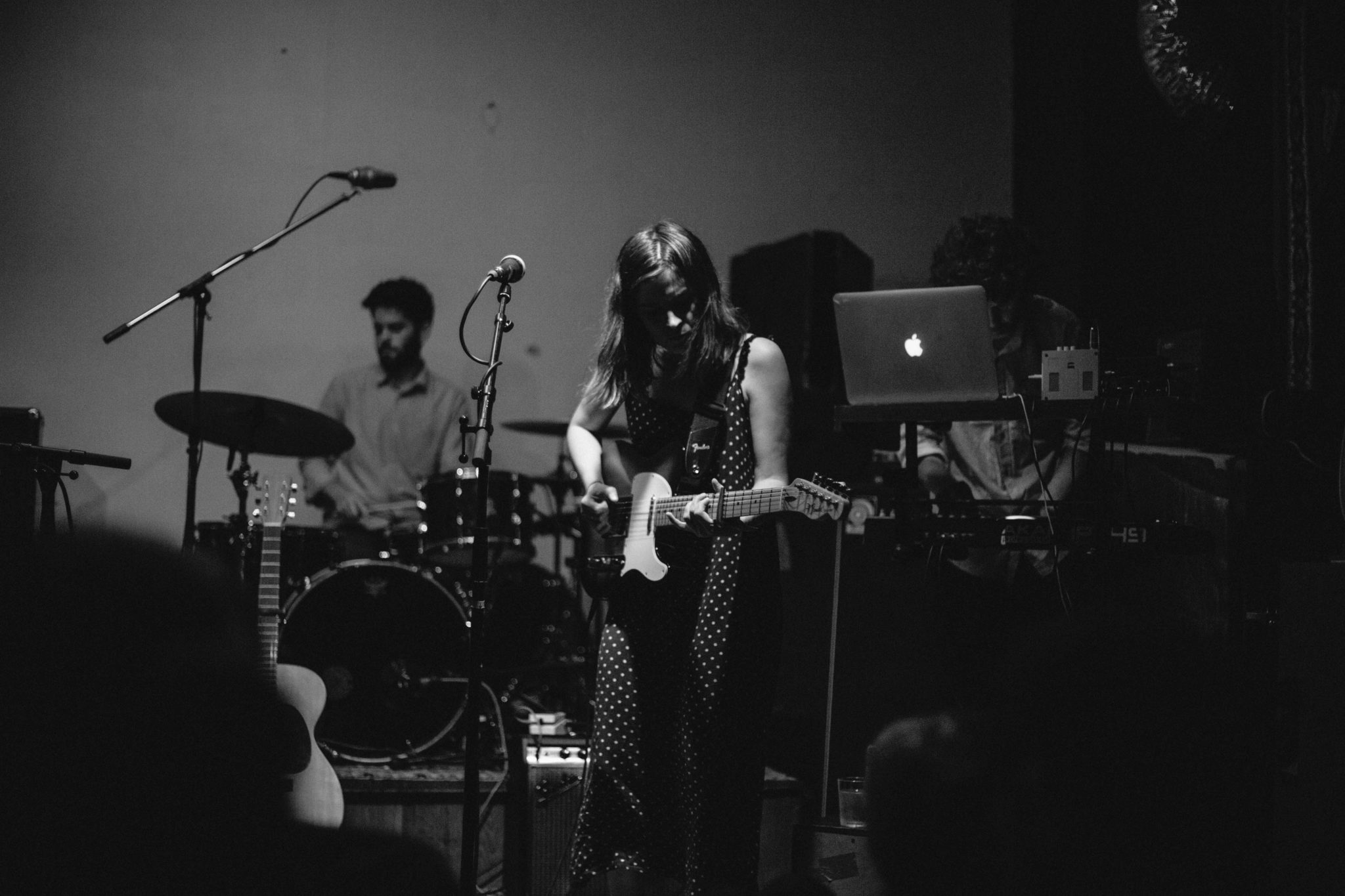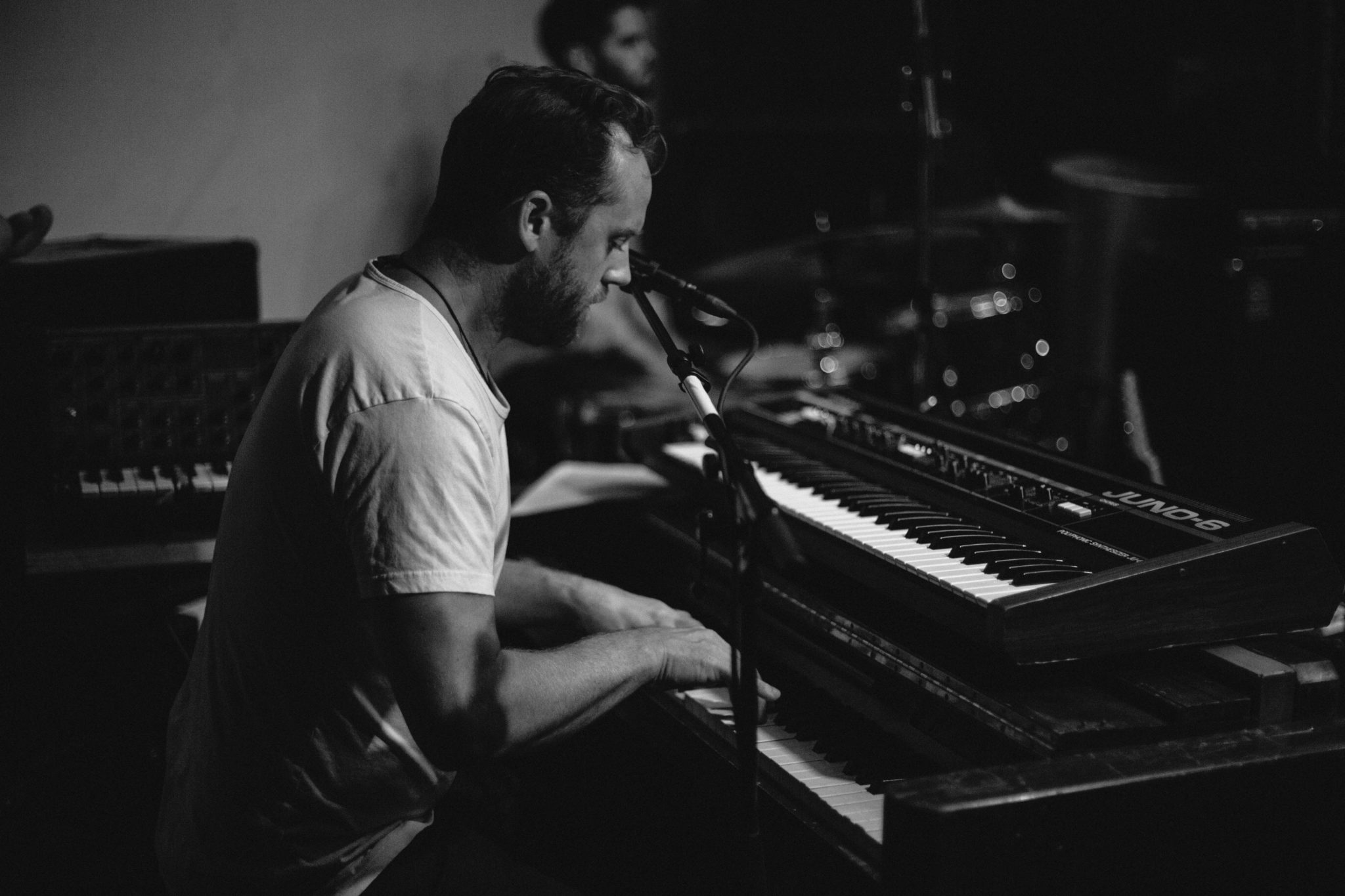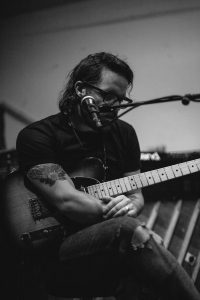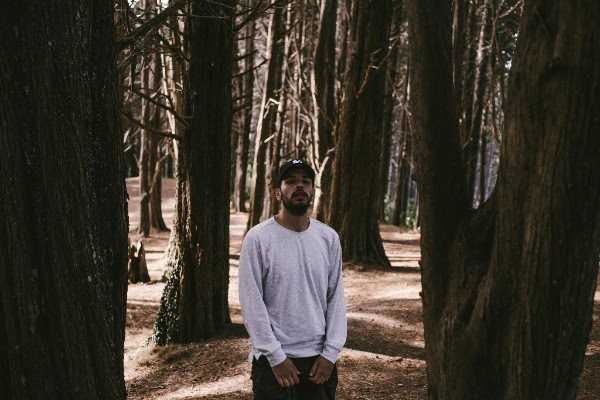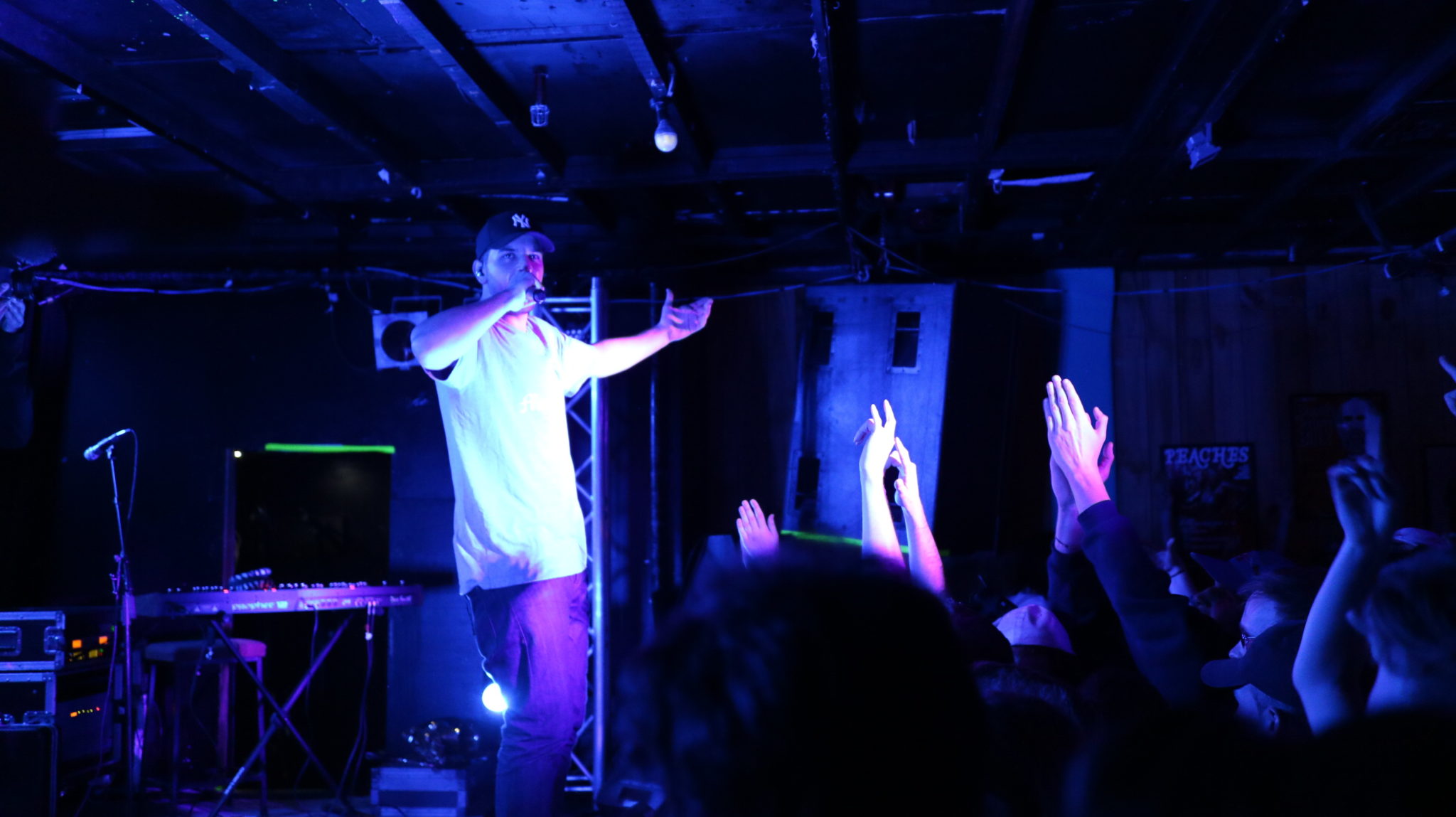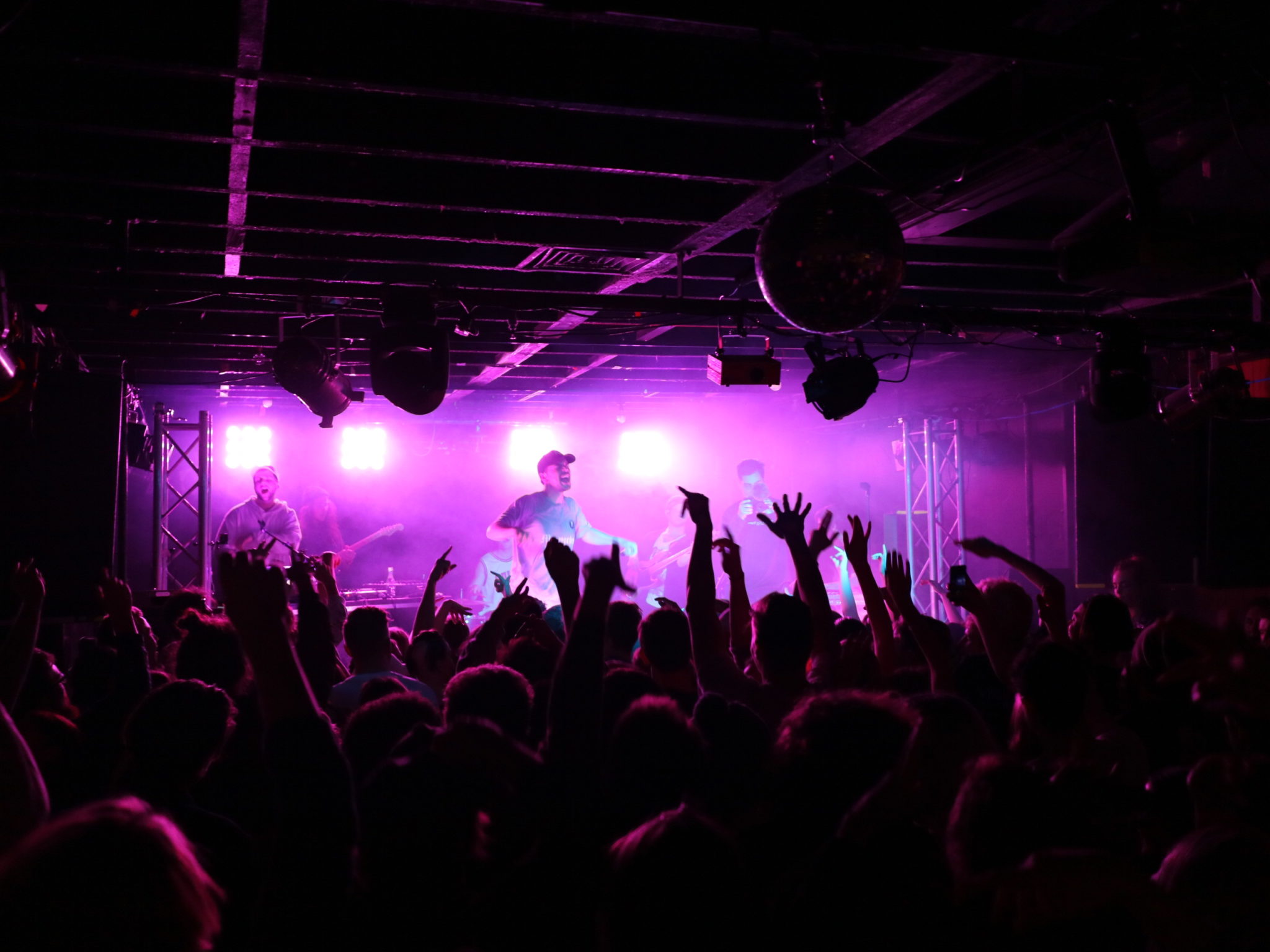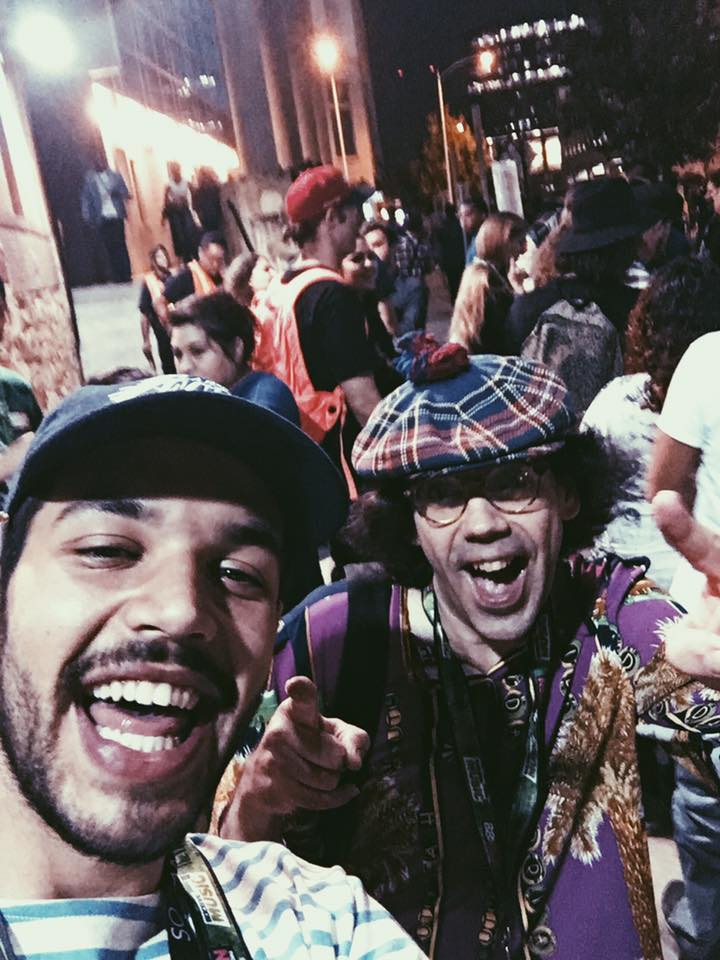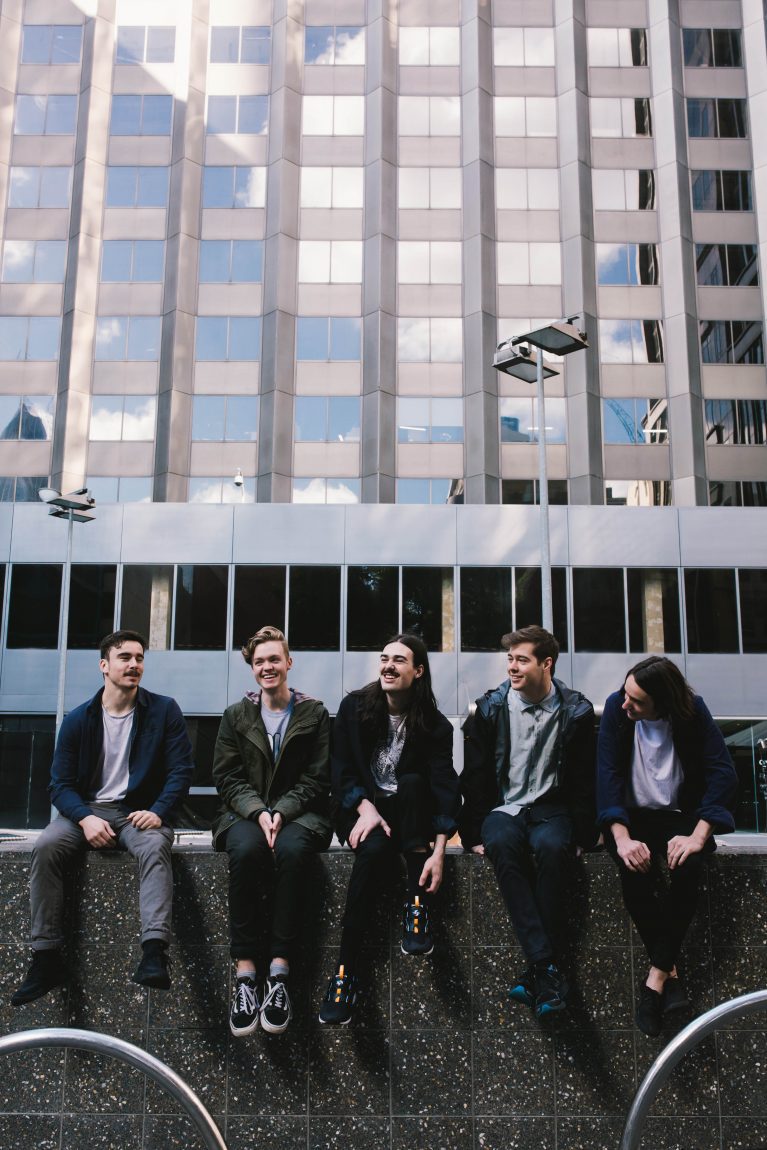Jan Platek is a German musician best known for his solo post-rock project We Deserve This. He is widely known within the international post-rock scene due to his prolific output, strong social media presence and of course, great musical talent. As an independent artist and strong supporter of the global music scene, Platek is exactly the type of musician we want to support here at Will Not Fade.
Following my review of Platek’s recent We Deserve This album Smile, I decided that I wanted to learn more about him. I emailed Platek at his home in Germany to ask about his various projects, and to learn more about what inspires and motivates him. It gave me great insight into a man who loves creating and consuming music on a voracious level.
English is not Platek’s native tongue, so his replies were not all entirely grammatically accurate. I’ve decided to leave them as is however, because I think it is important to let him present his views uncensored and unadulterated.
How are you Jan?
I`m feeling good right now, don`t know how long this feeling lasts…but thanks for asking.
What do we deserve?
We deserve pleasure, hugs and love. But maybe we also deserve bad things because of our actions. We are living in a strange decade with lots of trouble worldwide. Maybe our, and I mean the western world, behavior and actions will lead us into something really bad. If so, it’s our fault and we deserve it.
You clearly love photography. A lot of your album art features photos that you have taken. Do you plan to use photos for your music when you take them?
I`m starting with photography back in early 2015. My wife Karo is a really good photographer so she taught me the basics of a camera. After that I bought my first Fuji Camera. At first, it was difficult to understand all the settings but after I figured it out it was really great. I love taking photos, it`s like living in another world. It`s almost like being a child with a funny toy (the camera). And you know, I love playing…It´s almost like producing music, the same procedure. First you take a raw picture and after it you edit the photo on the computer. Editing photos is like mixing/mastering an audio track. Sometimes I take photos because I can imagine them as a cover artwork for my music. But mostly I find edited pics on my laptop thinking “that would be an awesome artwork“.

I see themes of nature and geometry throughout your album art. Is this deliberate?
Yeah I think so…geometry is a part of our nature. Have you ever seen a little snowflake with its tiny, geometric structures? It`s amazing. I think geometry is a part of our life.
I saw that you were fairly outspoken in response to Easter recently. Do you think that instrumental music can be (or should be) political?
That was on my private account and not on any of my pages on Facebook. Music is not a good tool to transport political views. It`s not my business to tell people political views. I`m pro gay, pro refugees, pro nature – more left-wing than right-wing. I don’t believe in god or in any religion. But does my views really count? Does anyone care about what Jan Platek thinks or believes? I don`t think so. I`m just a musician who wants to create music.
Is there meaning behind the eye with the teardrop logo? Do you ever try writing upbeat or cheerful music?
Yes, there is a meaning in the logo…but I don`t want to tell you which meaning. It`s my secret.
And yes, I often tried to write upbeat and cheerful music but I always failed. There are maybe five or six songs that I never released.These songs sound like Pennywise or Bad Religion with a little Billy Talent touch…I`m not sure if I will ever release these tracks. I think that vocals would make the songs huge but I`m a really bad singer….
Can you discuss the strengths and weaknesses of being a one-man band.
Hmm, I don`t know. I played in three or four bands as a drummer when I was in my 20`s. It was always a pain in the a** how the creation process worked. So lazy and slow. I think a band is a democratic institution with different interest. It takes a lot of time to create something. Being a one-man band is a lot faster. No one tells me “you have to play the guitar like this“ or “make a drum fill here“. I`m my own dictator. That makes everything much easier.
Some of your tracks are live recordings. Do you prefer live performance or studio work?
That`s a good question. I think I like live performances a little bit more than studio work. It`s a really great feeling to see how the crowd reacts even if they don`t know a single song. Studio work is a lonely thing. Working at night on my songs in the studio space is sometimes depressing. I`m alone with a lot of recorded stems and sometimes I want to talk to someone. I often would like to ask someone if the guitar or the bass is loud enough in the mix. But that`s my own choice, I`m a loner.
I know that you buy a lot of vinyl records, purchase albums on Bandcamp and stream music on Spotify. What medium do you use to listen to most of your music?
CD and the Bandcamp app on my iPhone. I have a Spotify account but that account is mostly for my 7-year-old daughter. She listens to Top 10 Charts Hits most of the time…I`m a vinyl collector, that´s true. But you need time to listen to vinyl in its entirety. I have two little kids so there is not much time to enjoy Vinyl records. Family life is wonderful but also sometimes very hectic.
You have two main projects: We Deserve This and Jan-Dirk Platek. Do you approach each project with different mindsets? I understand that the self-titled work focuses more on ambiance and texture.
My solo work is more piano based stuff with lots of electronics. There are no guitars on these songs. It`s more layed back ambient stuff…WE DESERVE THIS is for the Post-Rock heart that`s beating in me. I love to play the guitar and smash the cymbals on my Tama drum set.
You recently released Convex, which you consider your first strictly ambient album. What prompted this?
I discovered ambient music a little while ago and I really love it. Artist like 36, Tale Of Us or Leandro Fresco really blew me away. At that time I also listened to modern classical stuff. It looks like I´m tired of listening to loud rock music. I need the quiet moments right now. So I thought it would fit perfectly to try an ambient album. The strangest thing is, that I`m really overwhelmed by Convex. I usually don`t listen to my own music after its release date. But Convex is another thing…I play it very often right now. Maybe this is because it`s a complete new direction in my work. I don`t know…
You are incredibly prolific. Why do you drip-feed so many unique singles, as opposed to cultivating albums like most musicians?
I don`t know. Maybe that´s because I`m a child of the 80`s. Back in the days we all bought vinyl 7“ singles with only one or two tracks on it. It was fashion. I feel like a 80`s boy without the hair right now…hahaha.
You make lots of your music available for free. What is your motivation for giving away your music?
I think that my music must be available for everyone for a low price or for free. I want to spread my work as wide as possible. I have a normal day job and I don`t need my music to pay the bills. I just want to spread my creations. That`s it. Some people love this – other people hate the high amount of releases. I don`t care, producing music is like breathing for me and I like to give the people lots of fresh air.

You are signed to Fluttery Records, but release a lot of your work independently through Bandcamp. What arrangement do you have with Fluttery?
I can release albums on Fluttery Records and I also can release Singles/Ep`s/Albums on my own Bandcamp. That`s the deal and Fluttery Records is so kind to let me do my thing. Fluttery Records is the best label for Post-Rock and Ambient music right know. They really love what they`re doing. Most important: There are so many talented artists on that label.
You’ve also just signed to Russian label GS Productions. Why so many record labels?
GS Productions signed Jan-Dirk Platek and Fluttery Records signed We Deserve This. I guess my Jan-Dirk Platek stuff is too “electronic“ for Fluttery Records. I also never asked Fluttery Records to release my “solo“ stuff….
You are one of the top-selling artists on Bandcamp within the postrock genre. Why do you think you have become so successful?
I don`t think that I´m a top-selling artist but a lot of people are listening to We Deserve This. I don`t know how I have become “successful“. Maybe I know how to spam the social networks…like sharing links of my music in different groups and promoting my music links through Twitter and Instagram. I think social networking is the best tool to reach new fans. I also must admit that I only use these social networks for music. Exploring new artists, getting in contact with other artists and listening to new music. That`s the only reason to spend time on social networks: Music.
Your grandfather taught you to play music. What does he think of your music?
He died long before my first release came out. But I guess he would be very proud.
What is your main instrument? I know that you started out as a drummer.
My main instrument is the drum set. But I will take piano lessons this summer. I really love to play piano but I think I need to learn to play it perfectly.

Do you ever feel tempted to go back to using vocals or samples?
Hmm, I`m searching for a female vocalist but it`s hard to find her. If you know someone, please get in touch…
You’ve had a few collaborations over the years. Talk me through how you go about writing with other musicians. Do you meet up with them or use the internet?
Mostly everything is created by using the internet. Up next is a collaboration with the Synth-Wave Artist ADAM FORD. This guy from Italy is so kind, good and talented. I feel honored that he asked me to play on two of his songs. They will appear on his upcoming album Dreamscape. It`s a wonderful synthwave or vaporwave album that sounds simply awesome. I really like collaborations and I think I have to do more in that way. It feels good to be a part of someone`s creations.
You are incredibly supportive of the global post-rock scene. I know members of local bands here in New Zealand who have told me that you bought their records. How do you go about discovering new music?
Mostly on social networks like Facebook or Twitter. There are so many people, bloggers (like you) or artists out there and they keep sharing their favorite stuff. Bandcamp is also one of my favorite sources to discover new artists.
What else have you got planned for We Deserve This?
I guess another ambient release. The response regarding Convex is amazing. I reached many new listeners and lost some post-rockers. I love how ambient music slowed down my heartbeat down while creating Convex. Sounds strange but it felt like I`m in another world. Also, there are currently plans to play live in 2017. Not a tour but a small amount of gigs here in Germany. Last but not least: Thanks for the interview, Will Not Fade is also a good source to explore new artists. Thanks for supporting the underground music scene.
We Deserve This and Jan Platek links:
Bandcamp: https://wedeservethis.bandcamp.com/
Facebook: https://www.facebook.com/wedeservethisband/
Twitter: https://twitter.com/wdtband
Soundcloud: https://soundcloud.com/we-deserve-this
Tumblr: http://wedeservethis.tumblr.com/
Jan-Dirk Platek Bandcamp: https://jan-dirkplatek.bandcamp.com/releases
Jan-Dirk Platek Facebook: https://www.facebook.com/jandirkplatekmusic/
Jan-Dirk Platek Twitter: https://twitter.com/jan_platek
Joseph James
